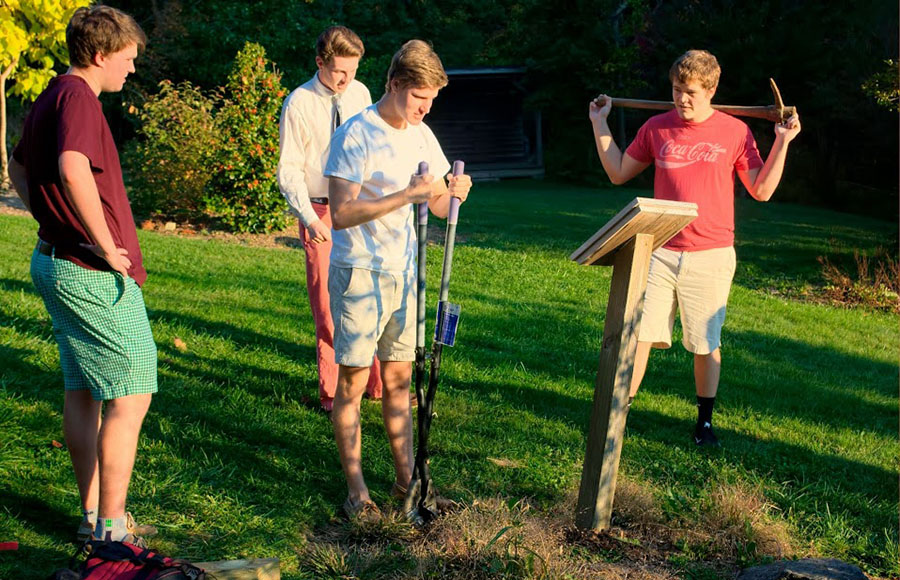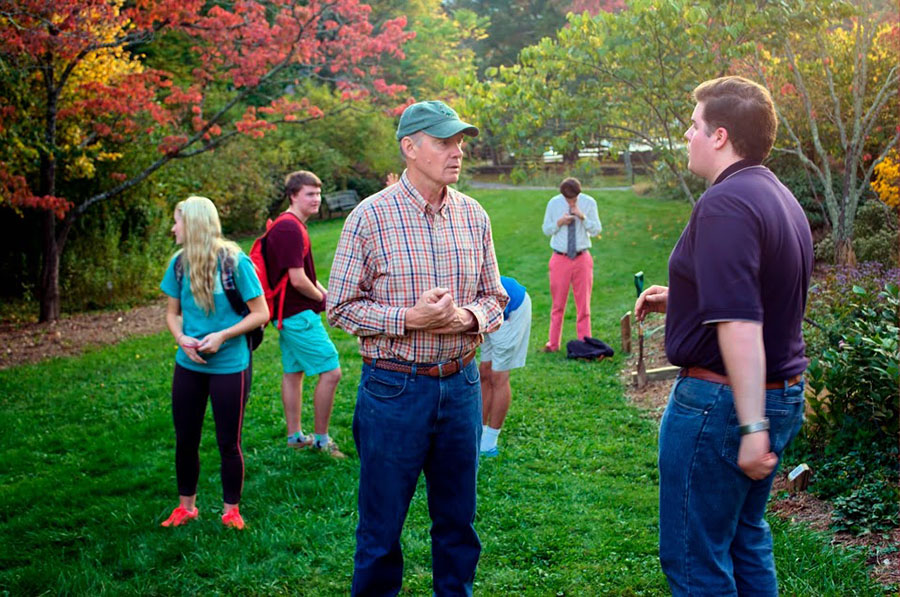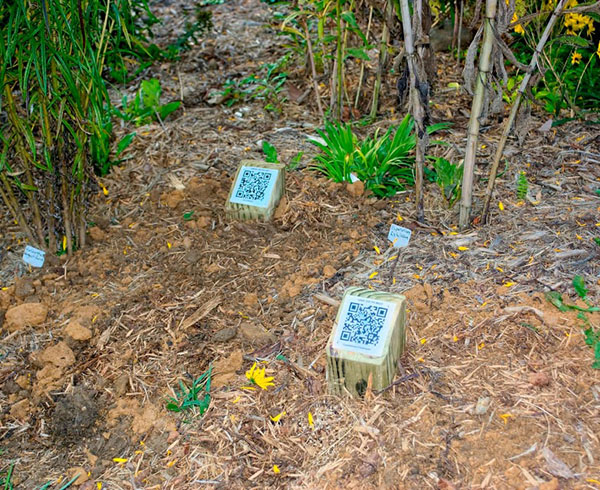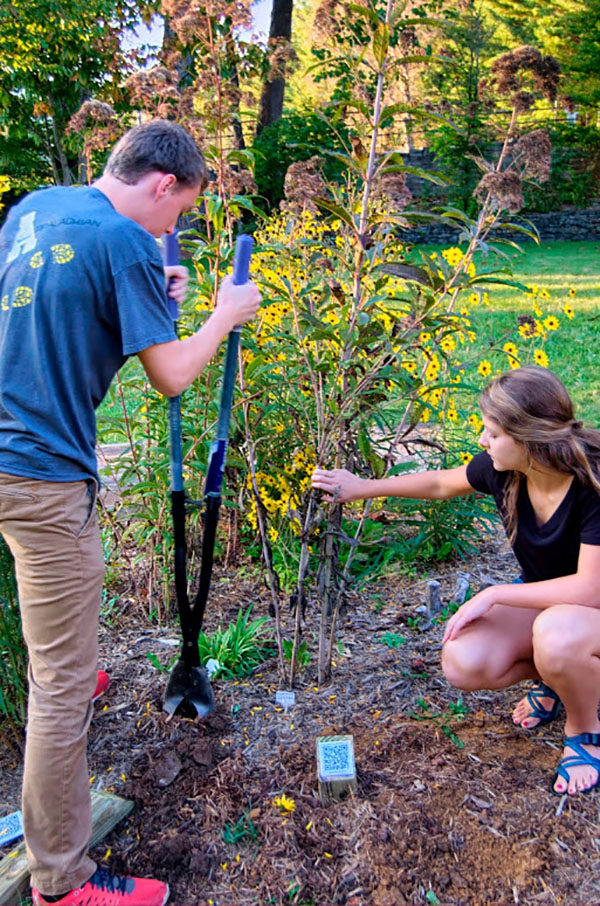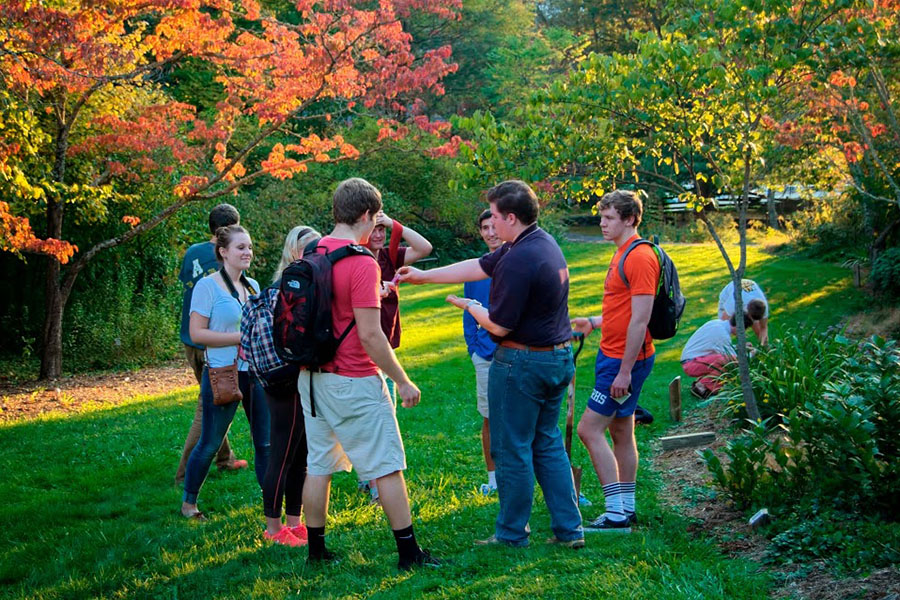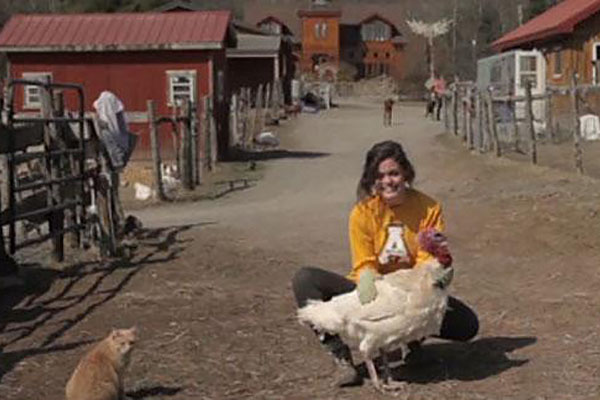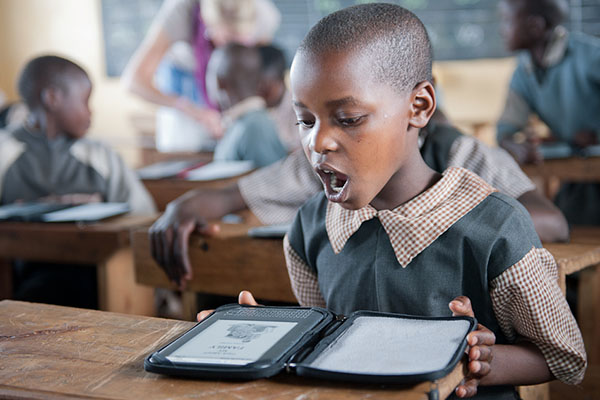BOONE, N.C. — A group of first-year students at Appalachian State University spent their Tuesday nights researching the eastern redbud, coneflower, American holly and blue flag iris – getting to know these and eight more species of plants native to the Boone area.
They then created Quick Response (QR) codes and information sites for the plants in the Daniel Boone Native Gardens as a part of a service-learning project in their First Year Seminar course called Make Stuff/Do Things, taught by Dr. Paul Wallace.
This is one of many examples of active learning at Appalachian, a key characteristic of why students chose to attend Appalachian.
"This service-learning project has taught me to apply what I learned in the classroom to a real life experience," said student Shelby Weatherman. "Ever since the first day of class, it has been a fun, challenging experience."
Service-learning experience
QR codes are barcodes made from a unique arrangement of black and white squares and can be read by mobile devices which use the code as instructions, in this case, to bring the user to a website.
For Daniel Boone Native Gardens, visitors can scan the student-created QR codes mounted on wooden posts next to the plants. The code will lead them to student-created web pages with information on each plant including pictures, descriptions and facts.
Wallace said the idea of collaborating with Daniel Boone Native Gardens developed from a conversation with Dr. Rebecca Kaenzig, a member of the garden’s board of directors and an accounting professor at Appalachian.
“The garden has long struggled with signage. They disappear or the plant disappears or sometimes both,” Kaenzig said. “We always hope to find good signage that informs the visitor and will not get lost.”
The QR codes also allow the gardens to deal with lost plants by changing out the information page each QR code is attached to.
“Current information is now possible,” Kaenzig said. “We can add more pictures or add more information even after the sign is already in place.”
Garden volunteer and landscape architect Bob Oelberg helped the class choose plants that would get the most use of the codes, such as plants that would bloom for a long time. He also helped the class install the signs.
“I’m delighted that a class of incoming freshmen, most without any experience, was able to learn the technology and apply it at no expense to the garden,” Oelberg said. “We worked together to install the posts and mount the QR codes at the selected plants, and they were a pleasure to work with.”
The Make Stuff/Do Things students also documented their work by taking photographs, used here, and writing press releases about the project.
Active learning and helping others
Wallace said that a big reason for conducting a service-learning project with First Year Seminar students was that it introduces them to their community through the act of helping others.
“From past classes where I have done service-learning projects, I’ve found that it really helped the students to care more about the community,” Wallace said. “My interest is always in helping students’ perceived notions of the community and interest in community service.”
Wallace said he has always been interested in service-learning, especially after his involvement as one of nine Appalachian faculty members in the Service-Learning Faculty Fellows Program in 2009-10.
“I think service-learning is a great way to learn,” Wallace said. “It gets students involved in real life activities. It’s not just making codes for a class that no one will use, it’s engaging the community and giving the project authenticity.”
From flowers to robots
The Make Stuff/ Do Things students will finish the fall semester collaborating with Dr. Michael Vallace and his students at Future University Hakodate in Hokkaido, Japan.
Wallace and Vallace’s students will work together via web conferencing to complete four activities. By the end of the collaboration students will build a robot.
“While I am interested in developing STEM (science, technology, engineering and mathematics) skills through building and programming the robots, in this project I'm equally interested in having students practice working in global virtual teams, to develop skills in cross-cultural communication, negotiation and global teamwork,” Wallace said.
What do you think?
Share your feedback on this story.
About First Year Seminar at Appalachian
First Year Seminar (FYS) introduces first-year Appalachian State University students to rigorous academic study at the university level through interdisciplinary engagement with a broad topic or question. Experienced faculty engage FYS students in a shared process of inquiry in small seminar-style classes. Regardless of topic, all First Year Seminars help students build information literacy skills, cultivate intercultural competence, develop creative and critical thinking abilities and practice effective communication skills. Additionally, the seminars introduce the importance of making local-to-global connections and of understanding responsibilities of community membership. Learn more at https://firstyearseminar.appstate.edu.
About Appalachian’s General Education Program
The General Education Program at Appalachian State University empowers students with broad knowledge and transferable skills for responsible global citizenship regardless of their chosen major. The General Education Program provides a rigorous liberal arts education that includes 44 semester hours of courses across the university that explore connections among different areas of study, plus two courses in the student’s chosen major — all of which address the goals of critical and creative thinking; effective communication; making local-to-global connections; and understanding the responsibilities of community membership. Learn more at https://generaleducation.appstate.edu.
About Appalachian State University
As a premier public institution, Appalachian State University prepares students to lead purposeful lives. App State is one of 17 campuses in the University of North Carolina System, with a national reputation for innovative teaching and opening access to a high-quality, cost-effective education. The university enrolls more than 21,000 students, has a low student-to-faculty ratio and offers more than 150 undergraduate and 80 graduate majors at its Boone and Hickory campuses and through App State Online. Learn more at https://www.appstate.edu.
